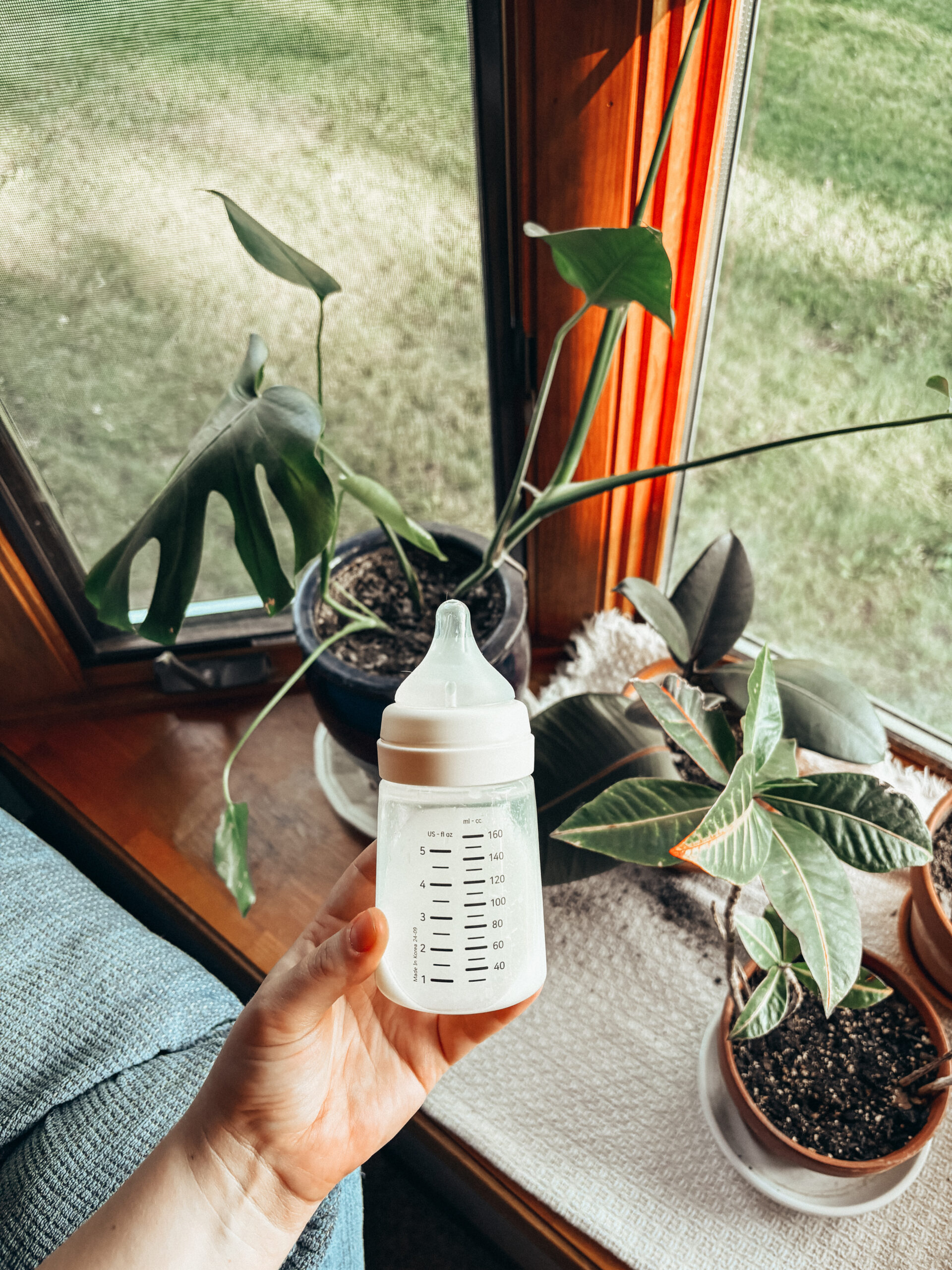the road map to *actually* knowing how to pump correctly! use your pump + settings with confidence while knowing how your body works in lactation. increase your supply + achieve your breastfeeding goals!
FAVE LINKS
TOP Topics
hi i'm Bethany! lactation counselor, oversupplier + NICU parent. i gotchu on everything you need to know about pumping effectively + simply —
i'm so glad you're here!!!
drop pump sessions with peace, not chaos! protect your physical and mental health and say "goodbye" to your lactation journey on your own terms. learn the exact methods to dropping sessions in a relaxing way, and lean in to what your body needs.
i know hospital staff and especially lactation can get a really bad rap. they’re blamed for us not getting started on breastfeeding correctly, for a wrong flange size, or not having the size we need! (and if i’m being honest, sometimes this is warranted depending on the individual folks, or the hospital!!!) BUT i wanted to get some more insight into the folks that support us while we bring our babies into the world, and as parents —
- how we can adjust our sights on what to expect with lactation staff in hospital
- what we can do to be as successful as possible in hospital
i asked my friend Janelle to be able to speak on this a little more! as a registered nurse, certified lactation counselor, now exclusive pumper, and previous breastfeeding/nursing parent — she is SUCH a resource in our community!!! so now introducing my “interview” Q&A with my friend Janelle —
HOW TO BE SUCCESSFUL IN BREASTFEEDING AFTER BIRTH WITH HOSPITAL LACTATION
chatting with @janellelynnrn — registered nurse, lactation counselor + exclusive pumper
Q: what expectations should we have for lactation staff? what is their goal in terms of being a support system for birthing + lactating parents?”
A: “the goal for hospital lactation staff is to provide basic breastfeeding education, provide resources for outpatient care, and get you and baby stable enough to be discharged home. they can obviously help with latching, positioning, and assessing oral function (think assessing for a tongue tie), but the main goal is to get you to a “good enough” place to send you home.
this isn’t because they don’t care, it’s just due to the limitations of the amount of time they can spend with you for the couple days you’re in the hospital. they most likely will not be able to come to your room and help with every feeding because of staff to patient ratios.
and they most likely won’t be able to come exactly at a time you want them to come, because they may be in another room helping someone else. many hospitals only have 2-3 LCs on shift at a time for many postpartum patients.”
Q: when happens when parents go home? what are their next steps if lactation care + more support is needed?
A: “i really recommend you start looking into lactation care in your area BEFORE you give birth so you have an idea of what’s available to you ahead of time. this would include contacting your insurance company and asking about what lactation services are covered. and then looking into local LCs in your area and what insurance they accept (if any at all).
if you don’t have many options for local (in person) LCs or would prefer virtual, that’s a great option too. many LCs provider virtual consults now.
- you can use databases such as ILCA’s website directory to find IBCLCs (https://ilca.org)
- Lactation network is also a great website to use to find an IBCLC (https://lactation network.com)
- there are also a lot of LCs on social media now that offer their services, but you have to be careful with this
make sure they have the proper certifications and experience in what you’re looking for help with (exclusive pumping vs latching vs tongue ties). many pediatrician offices also have an LC on staff, so it’s worth it to ask.”
Q: if there is a need (or a want) to pump what do you recommend bringing/prepping when packing for your birth and hospital stay?
A: “if you plan to pump (either exclusively or combo with nursing) and you want to start pumping right away (immediately after birth), it may be beneficial to consider antenatal colostrum collection (collecting colostrum while pregnant).
this is something not everyone can do and you NEED to consult with your OB provider before doing this. but if you’re able to, you can bring whatever colostrum you collected during pregnancy with you to the hospital and feed it to the baby when/if needed. this can be helpful in the situation of wanting to EP and you’re not able to produce anything during one of your sessions, then you can feed baby the colostrum you brought.
it can also be a good idea to bring your own pump and parts (not a necessity) if you would rather use your own stuff. the hospital should provide you with a pump and basic supplies, but they may not have the correct flange size available.
if you want to bring your own stuff, I would plan to bring an electric primary pump, tubing, flanges, duckbill/valves, backflow protectors, containers for milk (think small sizes), and a hand pump (most hospitals provide hand pumps but not all). if you don’t know what your hospital provides for lactation supplies, call the hospital or ask your OB provider.“
Q: how can expecting parents make their stay as “successful” as possible, in collaboration with lactation in hospital?
A: “i think it all begins with realistic expectations. most likely, the hospital lactation staff is not going to be able to teach you how to breastfeed completely by the time you leave to go home. there just isn’t enough time.
Breastfeeding can’t be “taught” (in most cases) in a couple days. it’s an ongoing and ever changing dynamic and relationship between mom and baby. they also probably won’t be able to spend as much time with you as you need. this is because of staffing ratios. too many patients and not enough lactation staff. the lactation staff is there to “get you started” but not provide you with everything you need to have a long term breastfeeding journey.
i also think open communication is key. be honest with what you’re looking for terms of help from lactation when they do come see you. that way they know what you’re looking for/expecting.”
Q: what do you wish more parents knew about lactation staff that work in hospital?
A: “they’re trying their best with the little time and resources they have. the lactation department at most hospitals are understaffed. which means there are only a few of them on staff at any given time, often with many postpartum patients (sometimes they cover the NICU as well).
so while they want to be able to spend a bunch of time with you, they often can’t. so when they come to your room to help, please let them! (if you want their help that is). i see a lot of patients send lactation away when they come by because they have family visiting.
and while I understand how important family is and how excited they are to see the new baby, the lactation staff may not be able to come back and see you that day if they get busy with other patients. just the facts!”
SOME ADDITIONAL RESOURCES THAT MIIIIIIGHT BE HELPFUL FOR YA —
free resource — the exclusive pumping lactational professionals list — the list of folks i know professionally that are the best at what they do, and can support you if pumping right from birth (or even unexpectedly) is a goal
free resource — the flange ruler — the at home nipple ruler to help you start using a more accurate size. read: have a more comfortable pump session + express more milk!!!
$9 instant download — ENGORGED to empty — the no bullshit guide to choosing the right breast pump the first time, so you don’t invest in any more garbage pumps!!!
consult support — book your 1:1 consult — especially if you want to come up with a pumping plan, and someone on your team prior to birth!
related blog posts that i think you’ll seriously love —
- when is the best time to measure your flange size for the most accurate and comfortable pumping experience?
- the how, when and why of collecting (aka harvesting) colostrum antenatally
- what i’m packing (& what i honestly used) in my hospital bag as a minimalist, type b and “failed” home birth parent
- my ride or die breast pumps + pump equipment (capsule wardrobe style) i would sell my kidney to try again
what other questions you have for birth or helping establish pumping or breastfeeding?
xoxo, Bethany | Certified Lactation Counselor | Your Overproducing Exclusively Pumping Mama



